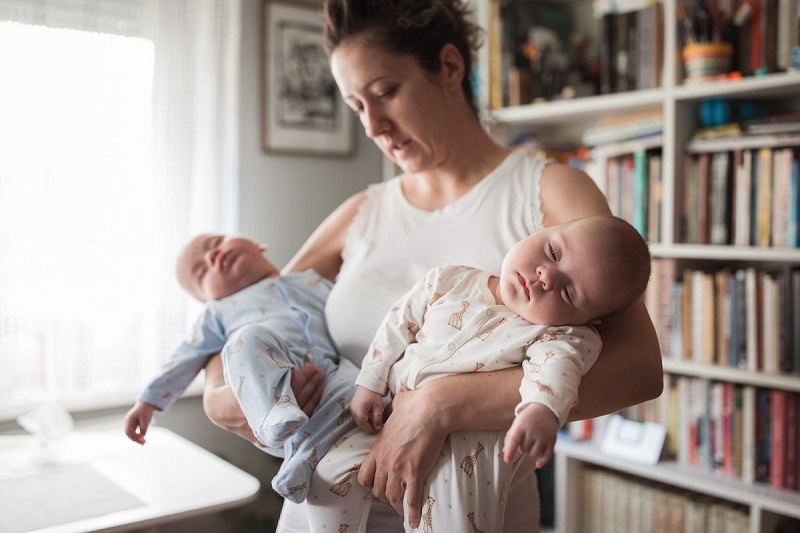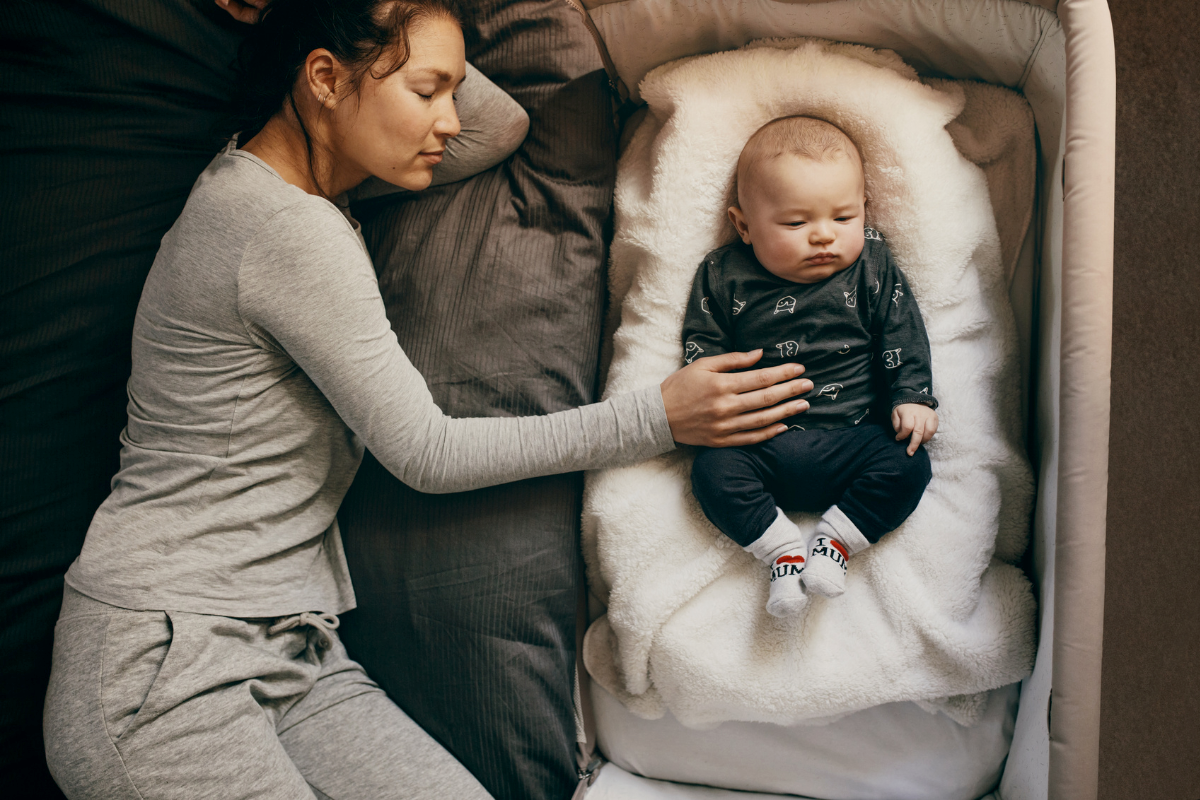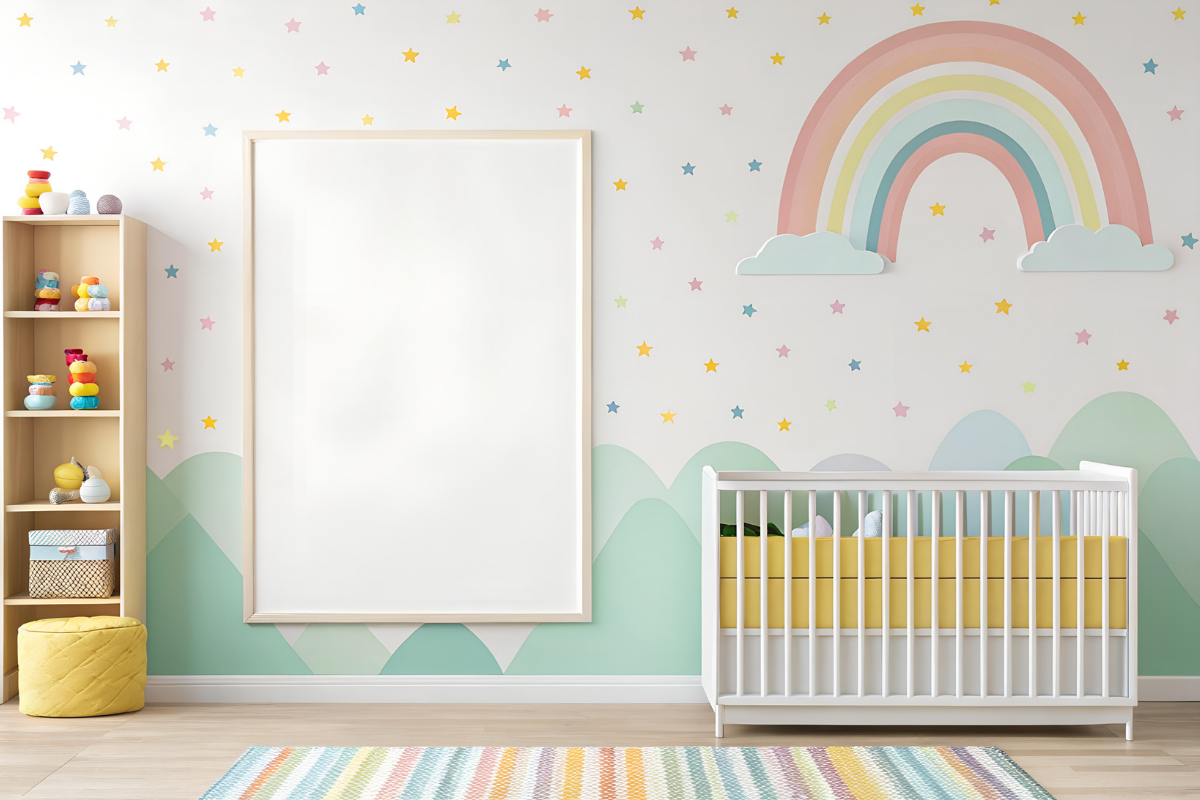The idea of wake windows (or adhering to a certain amount of time that a child is awake between naps) sounds like a simple enough concept, but in reality, it perfectly encapsulates the struggles of the first months of parenting.
For one thing, this is a question with a lot of contentious online discussion. “Wake windows” are closely related to baby schedules. Some people swear by baby schedules! Some people think that putting your baby on any kind of schedule makes you a monster. The only thing for sure is that whatever you do, you’re doing it wrong.
The idea of wake windows also feeds into our unmet desire for control. It is extremely hard to face the fact that your baby is just random in their behavior. Whether through data collection or not, for many of us, the first months of parenting are a blur of attempting to make sense of some relationship between inputs and outputs. How many minutes, precisely, did the baby nurse before that one magical night they slept through? If we kept them up for exactly 45 minutes, does that translate to a longer nap?

What are wake windows?
Wake windows are the amount of time that a child is awake between naps. The recommendations for this amount of time vary across age groups. For example, when a book or expert says that a wake window for a newborn is 40 minutes, that means that a newborn should be awake for 40 minutes maximum between naps. There are wake windows for older children and, presumably, for adults. But this is most frequently discussed in the context of babies, where the sleep schedule is more uncertain.
The recommendations about following wake windows are that you should be paying attention to the amount of time your baby is awake, and once you get closer to the end of the age-appropriate “window,” you should put them down for their next nap. This ends up translating into more or less of a schedule, but the idea is that you’re (theoretically) paying closer attention to your baby’s tiredness cues instead of adhering to a set time of day to schedule their naps.
What does the data say about wake windows?
There are at least two versions of the question “Does the data support this?”
First, we could ask whether there is good data pointing to a particular number for these windows. The answer there is absolutely not. One way to see this is that different sleep advice websites cite wildly different numbers — from 30 minutes to 60 minutes for a newborn. There is no organized data that experiments with different lengths of wake windows. Newborns generally need 14 to 17 hours of sleep per day, which leaves between seven and 10 hours of awake time. But that doesn’t say anything specific about how this sleep should be organized.
Moreover, based on what we know about sleep, there is no reason to think that these wake windows would be the same for all babies. Even if there were good information on an average length, it would not be directly applicable to everyone.
Second, we can ask a more general question of whether there is data to support the idea that babies can only be awake for some set amount of time.
This is an example of a question that needs to be more carefully posed. One version of it is to ask whether babies can just be awake all the time. The answer to that is obviously no. A second version is whether it matters overall how much sleep babies get. There, we can rely on a tremendous amount of data on older kids and adults, which makes clear that sleep is extremely important and that not getting enough of it impedes functioning. Consistently getting too little sleep can lead to an “overtired” baby — basically, a baby who is sleep-deprived and cranky, similar to a sleep-deprived and cranky toddler.
A more precise form of this question is whether you need to adhere to the idea of a fixed window. Is it better for babies to be on a schedule where they are awake only for this maximum period, or is it better for them to have a schedule that varies — sometimes 20 minutes of awake time, sometimes three hours?
Stated precisely like this, it is possible to ask about data. The answer is that there is no data that speaks to this choice. Sometimes, when we do not have data, I find it surprising and frustrating. Here, it doesn’t feel surprising because it’s hard to imagine a study for this. What is the outcome: behavior? crying? parental happiness? With older kids and sleep, you can do testing to see whether lack of sleep affects test scores; newborn IQ testing is notoriously difficult.
The combination of the difficulty defining the outcome, the probable difficulty of getting parents to adhere to the treatment, and the challenge of even defining what, precisely, the treatment is makes this study seem very unlikely.
Pulling this together, I conclude that we do not have precise data and that we are unlikely ever to get it, and even if you did see some study about average wake windows, you wouldn’t really be able to use it with your baby.
So, how should I organize my baby’s naps?
Where does this leave us? Does it mean the wake window approach makes no sense? No. Where it leaves us is in the same place that we often are with early parenting: there are many good choices, and you have to do what works for you.
There are three main things that are true:
- Babies need a lot of sleep.
- Sleep should be a priority. Things that are not a priority include keeping the baby up so they can entertain guests.
- There are signs of being tired (yawning, starting to get fussy) that indicate a need to go to sleep. Ideally, you should start preparing for sleep before these signs, and over time, you’ll likely learn your baby’s cues.
Keeping the above in mind, there are a lot of ways to organize the infant months that can result in babies getting enough sleep.
The idea of wake windows is one way to organize. Given a structure of “this is about how much awake time I expect,” you can outline the timing of the day around that. As babies get older, you can add onto this with some vague structure for the awake periods (a walk, looking at a book, tummy time); there is no strong reason to plan activities with a newborn, but for some people, it is helpful to have a plan.
Structure can help us know what to expect. We shouldn’t be fooled into thinking we have control, but this is a way to feel a little bit less crazy. It requires some experimentation — babies differ somewhat in how long they’ll be awake — but the basic outlines are there.
This type of structure doesn’t appeal to everyone! An alternative approach is paying attention to when your baby seems tired and putting them to sleep at that time, even if it is not closely tied to a wake window schedule, which is also completely reasonable.
Some people advocate setting a firmer schedule from the very start — rigid sleep and wake times. This is likely to be very difficult with a newborn, especially as their sleep and eating needs evolve quickly over time. As babies get older, their schedules start to normalize (both at nighttime and for naps).
Closing thoughts
To return to the question: Are wake windows real? In a sense, yes. Babies cannot be awake forever, and they have a sleep cycle that is somewhat organized.
What is not true is that it is necessary to adhere to a particular schedule. If the idea of wake windows works for you, that’s awesome. But if you do not want to be in a fixed structure like this, that is okay, too.
As long as you remember that sleep is important and that when the grandparents say the baby “doesn’t look tired,” they do not know anything, so just ignore them.
The bottom line
- Wake windows are the amount of time that a child is awake between naps. The recommendations for this amount of time vary across age groups.
- There’s no real data on the “right” wake window for babies. Given how different babies are (and how hard this would be to study), we probably shouldn’t expect any.
- Sleep is important and should be the priority. But how you organize that sleep can work in many ways. Wake windows offer one useful framework, but you should do what works for you and your baby.





















Log in
The most important thing I learned when I had my babies was that you need to prep them for naps before they show signs of tiredness. If you wait until they are obviously fatigued, they may be overtired and harder to put down.
We heard this from our pediatrician within the first month! And it’s true.
Side note but not really side note: we’ve always used wake windows with our child (now 2) and it works very well for him! We know how many hours he has to be awake before he’ll go to sleep within a reasonable amount of time and those numbers of hours pretty much structures our entire daily routine. We have no idea what else we could have used to make a routine. It’s not like keeping them up longer benefits anyone! And yet I see family members doing other things and struggling with poor child sleep. Not surprisingly.